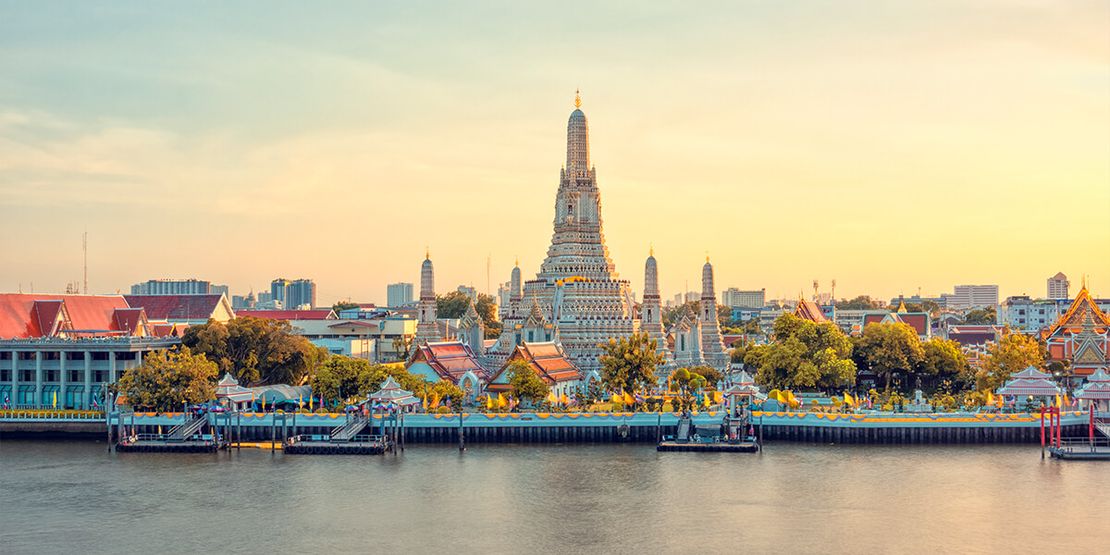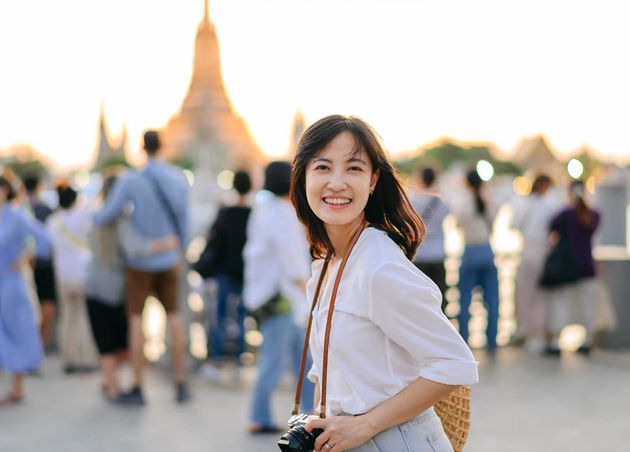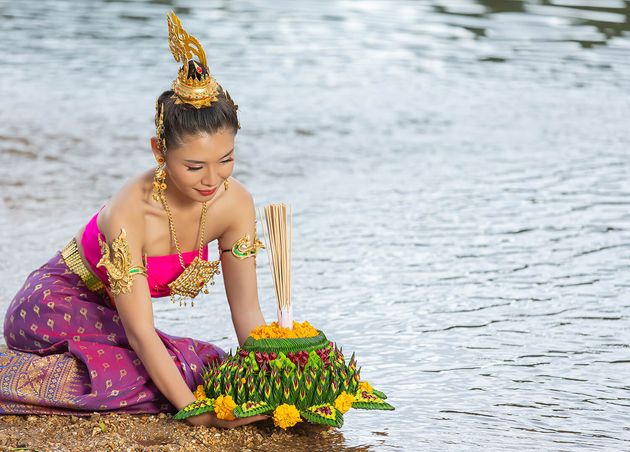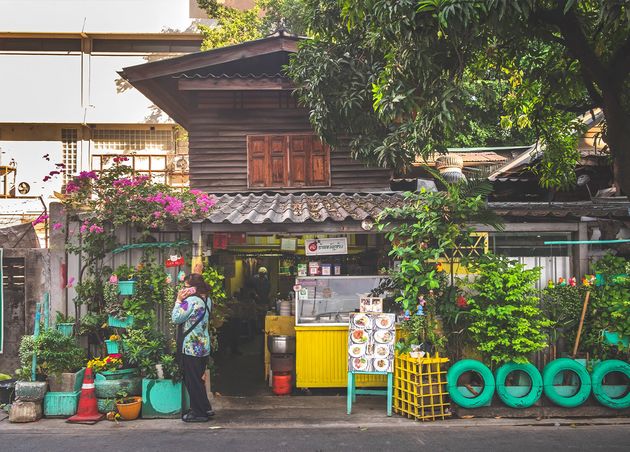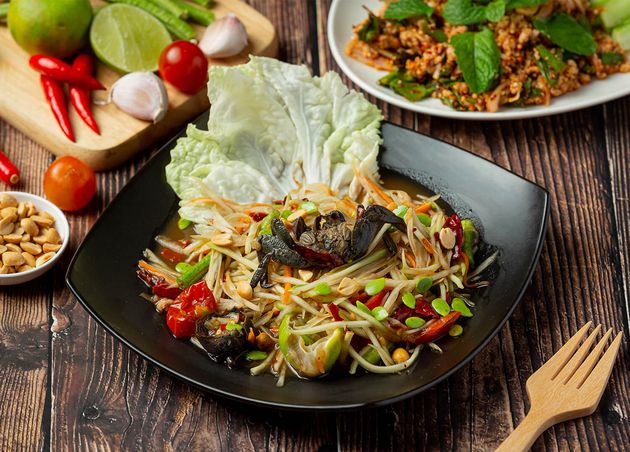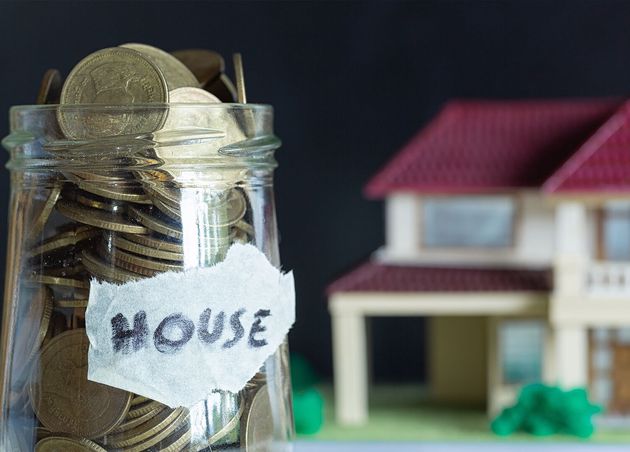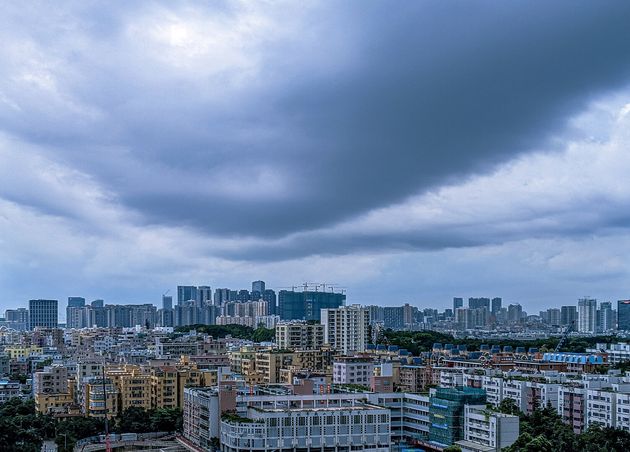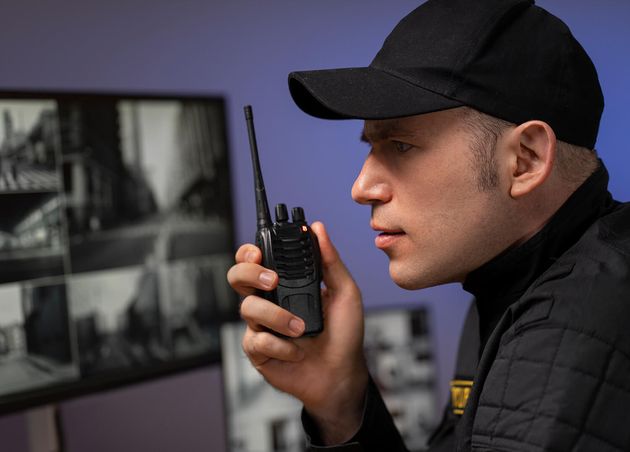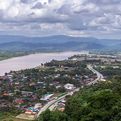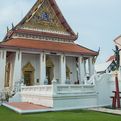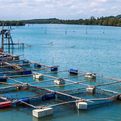Moving to Thailand Guide: Everything You Need to Know
Have you ever considered moving to Thailand, a fascinating country? If so, it's critical to comprehend and value the regional practices that constitute the nation's culture. Recognized as the 'Land of Smiles,' Thailand is well-known for its rich cultural legacy firmly ingrained in community and respect, stunning scenery, and mouthwatering cuisine.
Relocating to any country is a big choice that needs a lot of planning and thought, especially if you are planning to relocate to Thailand. This guide aims to give you essential information and useful steps to help you on your way. The more you know about the critical moving parts, the better prepared you will be for this exciting adventure. Let's discuss these things to help you fit in this country and get the most out of your life-changing relocation to Thailand.
Thailand Knowledge to Weave into Your Pre-move Planning
It is essential to arm yourself with as much knowledge as possible by doing thorough research before arranging your relocation to Thailand. Think about where the best places are to live, how much they cost, and how good the schools, hospitals, and transportation are. Also, ensure you know the legal requirements for foreign people, such as the visa rules and how to get a work pass.
Language Barrier and Communication in Thailand
The language problem is something that many migrants find hard when they move to a new country, and Thailand is no different. Thai is the official language, but English is spoken in tourist spots and big towns. Here are some things to think about:
- Learning Basic Thai
- Before you move, learning some basic Thai words might be helpful. For example, this can help with everyday tasks like shopping or taking the bus.
- Language Schools
- Thailand has many language schools where people from other countries can learn Thai.
- Apps for Translation
- If you need to speak clearly in a place where English is not the main language, use apps for translation.
- Make Friends with Locals
- Making friends with Thai people can help you learn the language and get used to the way of life faster.
- Be Patient and Practice
- Learning a new language takes time and work. Take your time and use every chance you get to practice speaking Thai.
Understanding the Culture of Thailand
Getting used to a new lifestyle can be fun and challenging. Here are some tips to help you deal with the different ways of life you might find in Thailand:
- Respect for Monarchy
- The Thai people have a lot of love for royalty. Because of this, it's important to be polite when talking about the government or anything connected to it.
- Wai Greeting
- One of the most important parts of Thai culture is the "Wai" greeting, which means to put your hands together at chest or nose level and bow.
- Taking Off Your Shoes
- In Thailand, taking off your shoes before entering houses and holy places is normal.
- Religion
- The religion of Buddhism is significant to Thai society. It is very important to show respect for Buddhist customs and buildings.
- Dressing
- The warm weather in Thailand might make you want to wear light clothes, but remember that Thai society is generally traditional, especially in rural areas. Be humble in what you wear, especially when going to holy places.
- How to Eat
- Thai people usually eat with a spoon and a fork, with the spoon being the main tool. Also, leaving food on your plate is rude because it looks like you didn't enjoy your meal.
- Taboos
- Thailand has many rules that people should follow. For example, you shouldn't touch someone on the head, point with your feet, or show love in public. Knowing these can help you avoid disrespecting someone without meaning to.
- Patience and Understanding
- Patience and understanding are essential when learning a new culture. It's also important to be patient and understanding when problems or mistakes occur. Learn about and enjoy the little things that make Thai culture unique.
Don't worry if you need help understanding everything right away. Getting used to a new culture often takes time. You'll quickly feel at home in the Land of Smiles if you keep an open mind and a good mood.
🚀 Expat Trivia!
Elephants are deeply ingrained in Thai culture and history, making them a symbol of the nation. March 13th is Elephant Day, a national holiday celebrating these magnificent animals.
Healthcare System of Thailand
When planning your move to Thailand, consider the health care system there. The country has state and private healthcare centers, and their standards range.
- Public Healthcare
- Thailand's public health care system is generally perfect, especially in cities. Public hospitals are popular among locals because they offer cheap medical care.
- Private Healthcare
- In Thailand, private hospitals usually provide better care because they have more up-to-date medical tools and English-speaking people.
- On the other hand, it costs a lot more than state hospitals.
- Health Insurance
- It is highly suggested that you have full health insurance that covers hospital stays and medical care. For some cards, you have to have health insurance.
- Pharmacies
- There are a lot of pharmacies in the country, and many are open 24 hours a day. It is possible to buy most medicines without a prescription, but it is still a good idea to talk to a doctor before self-medicating.
- Vaccinations
- Before going to Thailand, ensure you have all your regular shots. Depending on where you live and where you plan to visit the country, you may also need extra shots for diseases like Japanese Encephalitis, Hepatitis A and B, Typhoid, and Rabies.
- Health Risks
- You should be aware of some health risks in Thailand, such as dengue fever, malaria, and diseases that spread through food. You can lower these risks by using bug spray, drinking clean water, and eating fully warmed food.
The healthcare system in a new country can take a lot of work to get used to. Your and your family's health is essential, and you must plan it before relocating to Thailand.
Housing in Thailand
When you move to a new country, finding a good place to live is very important. When looking for a place to live in Thailand, here are some things to think about:
- Location
- Where you live in Thailand can greatly affect how you live there. You should choose between urban and country places based on where you work, your tastes, what you like to do for fun and social reasons, and how close you are to services.
- Types of Homes
- Thailand has a lot of different types of homes, from high-rise condos in the towns to traditional Thai homes in the countryside. Your pick will rely on your price, how much room you need, and the features you want.
- Cost
- The price of a house in Thailand can change a lot. Renting a one-bedroom apartment in the city center is pricey, but you can find cheaper ones in the suburbs or the country.
- Lease Agreement
- Before you sign your lease, ensure you fully understand its rules. Having a known local or attorney review the deal is a good idea.
- Local Real Estate Agents
- If you're looking for a house, working with an agent in your area can be helpful. They can help you navigate the local market, deal with language hurdles, and make deals.
- Utilities and Internet
- Consider how much things like Internet, power, and water cost and where you can get them. Most services are reliable in cities, but things can be less dependable in more rural places.
- Safety
- Think about how safe the area is. You can understand how safe an area is by looking into crime rates, talking to people, and going there at different times.
- Community
- Think about what kind of neighborhood you want to live in. You should live in a busy city area, a quiet town, or a village in the country.
Finding the right place to live is very important for your move to Thailand to go well. Do your homework, check out a few places, and talk to people who live there to find a place that fits your price and way of life.
🚀 Expat Fact!
The Golden Buddha, weighing an incredible 5.5 tonnes, is housed at the Wat Traimit temple in Bangkok and is the biggest solid gold statue in the world.
Food and Dining in Thailand
Thai eating practices are an integral component of the dining experience. The cuisine reflects the nation's culture. These are important things to keep in mind:
- Street Food
- Thai street food is famous. Street stalls serve a wide range of tasty and cheap foods, such as noodle soups and stir-fried dishes.
- Traditional Thai Foods
- Pad Thai (stir-fried noodles), Som Tam (spicy green papaya salad), and Gaeng Keow Wan (green curry) are all traditional Thai foods that you should try.
- Fruits
- Thailand has a lot of different kinds of wild foods. Mangosteen, Durian, and Rambutan are some fruits that you should try.
- Drinks
- You should try Thai drinks as well as Thai food. Cha Yen (Thai iced tea) and Nam Manao (lime juice) are great drinks to cool off in the humid heat.
- Options for Vegetarians
- Most Thai food isn't vegetarian, but many places serve vegetarian and vegan versions of classic meals.
- Spicy Food
- Thai food is known for being very spicy. But most of the time, you can ask for the spice you want in your food.
- Sharing Food
- Thai people usually eat together, ordering several foods and then sharing them with everyone in the group—one great way to try many different foods simultaneously.
- Hygiene
- Most street food is safe, but it's best to pick stands that look clean and are full of people from the area.
- Water
- Drinking water from a bottle than from a tap is better.
When you try Thai food, keep an open mind and a taste for new things. Thai food's unique tastes and textures take you on a fun trip through your taste buds.
Cost of Living in Thailand
The cost of living in Thailand is low compared to many other places, but it can still add up, especially for people who live in big towns like Krung Thep Maha Nakhon (Bangkok). It's important to carefully plan your budget and spend only what you need on food, transportation, and bills.
- Housing
- The housing price relies on its location and what kind of housing it is. Most of the time, apartments in the city center cost more than apartments in the neighborhoods or country areas.
- Utility Bills
- The cost of living can increase if you pay for things like power, water, and Internet every month. The price can change depending on where and how much you use it.
- Grocery Expense
- Most daily foods, like fresh fruits and vegetables, meat, and home items, are not too expensive, but prices can change by store and area.
- Dining Out
- Thailand has many places to eat, from cheap street food to fancy restaurants. Costs depend on where you eat and what kind of food you order.
- Transportation
- Buses, trains, and cabs are all examples of cheap public transportation. If you decide to buy a car, you should consider how much it will cost to fuel, insure, and fix up.
- Healthcare
- Public healthcare is cheap, but private healthcare can be pricey. Getting health insurance might help you pay for these things.
- Education
- If you have kids, think about how much school costs. Most of the time, international schools cost more than domestic schools.
- Costs of Leisure Activities
- Going to the movies, exercise centers, and tourist spots can add to the total cost of living.
- Clothing and Selfcare
- To determine the cost of life, you should also consider clothes, personal care products, and cleaning services.
- Taxations
- People who live outside of Thailand should also plan their budgets to include the cost of taxes.
Even though Thailand's cost of living is cheaper than that of many Western countries, it is still essential to make a budget and plan to maintain a decent standard of living.
Weather in Thailand
The tropical weather in Thailand is usually hot and sticky. You should pack the right clothes and be ready for sudden rain showers. Thai weather can be divided into three seasons: hot, rainy, and cool. Remember these necessary things:
- From March to June, the Hot Season
- High temperatures, often above 30°C (86°F), are common. You must wear sunscreen, hats, and light clothes during this time.
- From July to October, the Wet Season
- During the wet season, it rains a lot, mainly in the afternoons and evenings. It will be easier to deal with the rain if you bring an umbrella and wear clothes that dry quickly.
- Cool Season (November to February)
- With cooler temperatures and less rain, this is the most pleasant time of the year. In Thailand, "cool" isn't always the same, and temperatures can still stay around 25°C (77°F).
- Different Regional Climates
- The weather can be very different in different parts of the country. Things are cooler in the northern parts of Thailand than in the southern parts.
- Air Quality
- During the summer, agricultural fires can worsen air quality in some places, especially in the north. People who have breathing problems should take the right safety measures.
- Protection from the Sun
- Thailand's tropical sun can be extreme all year, so wearing hats and sunscreen and drinking plenty of water is important.
Knowing about Thailand's weather can help you plan your trip or move more efficiently, ensuring you're ready for the conditions you'll face.
Thailand Visa Requirements
Thailand has strict rules about getting visas. You need to make sure you have the right visa before you move. Make sure you know what you need to do and the different types of visas that are out there.
- Tourist Visa
- The tourist visa is for people who only want to stay in Thailand for a short time for vacation reasons. It usually lets you stay for 60 days, but that time can be added.
- Non-immigrant Visa
- This type is for people who want to stay in the country longer, like to work, study, or retire. It needs more detailed documentation.
- Visa on Arrival
- People from some countries can get a visa when they arrive and stay for 15 days. There are, however, some requirements and limits that come with this.
Safety in Thailand
Even though Thailand is usually a safe place to travel, it's still important to be aware of your surroundings and take the right safety measures.
- Tourist-targeted Scams
- Be aware of common scams that target tourists, like gem scams, overcharging for goods or services, and fake tour operators.
- Transportation Safety
- If you take a taxi, tuk-tuk, or motorbike taxi, ensure they have a license and use meters to avoid getting ripped off.
- Natural Hazards
- Floods, tropical storms, and earthquakes can damage Thailand. Keep up with the weather and what safety measures you should take.
- Health Precautions
- In some parts of Thailand, diseases spread by mosquitoes, like dengue fever and malaria, are a problem. Make sure you take the right steps to avoid getting bitten by bugs.
- Political Unrest
- There isn't often political unrest in Thailand, but knowing what's happening during your trip is still a good idea.
You can definitely ensure a safe and fun time in Thailand by being aware of the possible dangers and taking the proper precautions.
Moving to a different country, like Thailand, is an exciting and life-changing experience. But before making the big move, it's important to learn as much as possible about living abroad, such as job opportunities, legal requirements, and educational options. If you fully understand and are ready, the move will go smoothly for you and your family, and you will have a fulfilling expat experience.
Contact other expats or locals who have moved and gone through a similar process. Their first-hand knowledge, experiences, and tips can be very helpful. Don't be afraid of this journey of discovery and change. In the Land of Smiles, you'll find lots of new adventures.
Recommended for you
Future of Shrimp Farming: Embracing Indoor Cultivation
Riley Sinclair (Digital Aqua Bear)
Shrimp Farming in Thailand: Exploring Only the Best Places
Riley Sinclair (Digital Aqua Bear)


